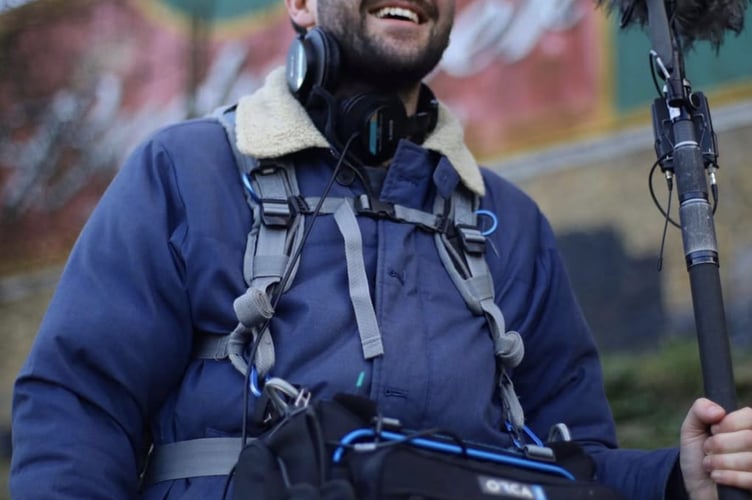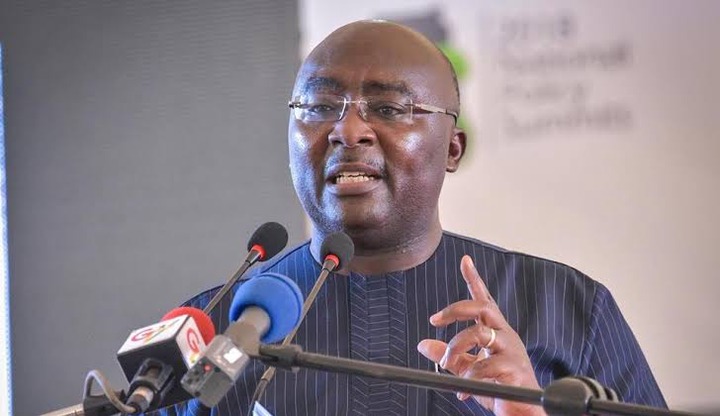
Share to Facebook Share to Twitter Share to Linkedin Songe LaRon, Squire CEO S ince digital payments became the backbone of global commerce, fintech startups have been racing to gain a piece of this growing pie. This year, payments ranks among the largest categories in the Forbes Fintech 50 –tied with B2B banking with 11 winners each–driven by the demand for faster settlements, immediate access to money and the integration of payments with other business services. Payments is also the only category with fintechs that have been on the Forbes list for all 10 years we’ve published it: Stripe and Plaid.
Founded in 2009, Stripe processes payments online and has 300,000 business customers for its subscription-billing product. It’s also the world’s most valuable fintech, with shares changed hands last September at a $70 billion valuation. Plaid links financial apps to users’ bank accounts , facilitating payments and financial data aggregation.

In 2024, the company surpassed $300 million in revenue and saw significant growth, adding 500,000 to 1 million new connections daily while expanding its reach to 20 countries. An impressive six payments companies are making their first appearance on the list. Two of those first-timers, Increase and Nala, are building infrastructure to address inefficiencies in how money moves.
Founded in 2020 by Darragh Buckley, the first employee of Stripe, Increase is already helping 4,500 customers (including fintechs and small and midsize banks) connect directly with Visa, Fedwire, FedACH and other payment networks. That can reduce transaction time and cost and give businesses more control over their payments. Benjamin Fernandes, Nala’s Tanzanian cofounder and CEO (with a Stanford MBA), has succeeded in a very different niche–enabling African migrants in the U.
S. and Europe to more efficiently send money back home. Last year, Nala expanded beyond Africa into South Asia, launching services in the Philippines, with plans to enter Latin America next.
In addition, with $40 million raised last summer at a $200 million plus valuation, Nala is building its own payment rails to allow multinational businesses to more easily move money to and from Africa. Two other newcomers have potentially smaller, but equally intriguing niches. Both have been around for some years, but their businesses posted substantial growth last year.
Squire, a booking and payments platform for barbershops, ended the year with 20,000 customers, up from 15,000 the year before. DailyPay, which allows employees paid on an hourly basis to tap their earnings immediately, ended the year with 5.2 million eligible workers, including at Target and Kroger.
Here are the 11 payments companies that made the Fintech 50 in 2025: Candex Headquarters: New York, New York. Acting as a master vendor and payment hub, Candex processes transactions for clients L'Oréal, HSBC, and Colgate, eliminating the need for costly and time-consuming supplier onboarding. The company charges a 3% fee per transaction.
Today, vendors in 46 countries can be paid within minutes. At the end of 2024, Candex had 120 customers, up from about 90 the year prior. Funding: $85 million from Goldman Sachs, Altos Ventures and Craft Ventures, among others.
Latest valuation: $300 million, Forbes estimates. Date of last valuation: November 2023. Bona fides: Candex processed more than 135,000 transactions in 2024, double the volume the company processed in 2023.
Cofounders: Jeremy Lappin, 47, a serial entrepreneur whose last endeavor before Candex was a marketplace helping companies find headhunters; Shani Vaza, 48, a former research and development manager for market data firm SuperDerivatives. Carry1st Headquarters: New York, New York and Cape Town, South Africa. Develops, licenses, and publishes mobile games primarily in Africa while operating a payments platform that supports in-app purchases for popular titles like Call of Duty: Mobile .
In 2024, Carry1st expanded to the Middle East and broadened its offerings to include music and dating apps. Over the past year, the company nearly doubled its customer base, growing from 1.2 million to almost 2 million monthly active users.
Funding: $60 million from Bitkraft Ventures, Andreessen Horowitz (a16z) and Google, among others. Bona fides: Powers in-game payments for customers including Activision, Electronic Arts and Riot Games. In 2024, it also landed Audiomack, one of Africa's top music streaming platforms, as a customer to help it process subscription payments.
Cofounders: CEO Cordel Robbin-Coker, 38, a former vice president at Carlyle Group; COO Lucy Hoffman, 38, a former investment banker at Morgan Stanley; and CTO Tinotenda Mundangepfupfu, 39, a software engineer. DailyPay Headquarters: New York, New York. DailyPay aims to give employees real-time access to their wages immediately after they’ve earned them.
Workers can choose from three disbursement options: free next-day ACH transfers, instant transfers to the DailyPay card or immediate transfers to third-party accounts for a $3.49 fee. It has a client base of over 1,000 businesses, including companies like Target, Hilton and Kroger.
The company earns revenue through its instant-transfer fees and interchange fees from its DailyPay card. In the fall of 2024, DailyPay launched in the U.K.
Funding: $330 million from RPM Ventures, Carrick Capital Partners and Inspiration Ventures, among others. Latest valuation: $1.75 billion.
Date of last valuation: January 2024. Bona fides: In 2024, 5.2 million employees were eligible to receive DailyPay’s earned wage services, up from 4.
6 million the year prior. Founder: Jason Lee, 47, a former investment banker who left DailyPay in 2022 and went on to found earned wage access startup Salt Lab, which Chime acquired in 2024. CEO: Stacy Greiner, 51, an MIT MBA who previously held roles in sales and marketing at Dun and Bradstreet, Cisco and IBM.
Highnote Headquarters: San Francisco, California. Founded in 2020, Highnote’s first product was card-issuing software that lets businesses quickly issue customizable debit and credit cards, similar to the services offered by Marqeta. It later released software that allows businesses to accept online credit and debit payments, known as acquiring, putting it in competition with companies like Stripe.
In January 2025, Highnote raised $90 million in new funding at a valuation of more than $750 million. Funding: $154 million. Latest valuation: More than $750 million.
Date of last valuation: January 2025. Bona fides: It has 50 customers, including BNY Mellon and fintech startup Mudflap, and reached $81 million in annualized gross revenue at the end of 2024. Cofounders: CEO John MacIlwaine, 55, who previously worked as general manager of PayPal-owned payment processor Braintree; CTO Kin Kee, 57, who was the director of architecture at Braintree.
Increase Headquarters: Bend, Oregon. Increase helps tech companies store, move and manage money. Founded by Darragh Buckley, Stripe’s first employee, it connects banks and fintechs directly to established payment rails like Visa and the Federal Reserve’s Fedwire and FedACH.
Increase focuses on the final step of payments, giving users better visibility into fund flows, thereby improving reliability. Its clients include small and midsized banks and such fintechs as Ramp, Check and Pipe. Funding: No outside funding.
Bona fides: Reached 4,500 customers in 2024, up from 3,000 in 2023. Buckley expects the 15-employee company to turn profitable in 2025. Founder: CEO Darragh Buckley, 40, a native of Limerick, Ireland, and an MIT grad who was the first employee at Stripe.
Nala Headquarters: New York, New York. Nala is a cross-border remittance platform that lets consumers in the U.S.
and 20 European countries send money to African nations, including Kenya, Nigeria, Uganda, Tanzania and Rwanda. In August 2024, Nala expanded into South Asia and launched its services in the Philippines. Beyond helping consumers make money transfers, Nala's Rafiki (“friend” in Swahili) is a cross-border payment platform that helps African businesses trade globally.
Funding: $50 million from Accel Partners, Acrew Capital, Amplo and DST Global, among others. Latest valuation: More than $200 million. Date of last valuation: July 2024.
Bona fides: In 2024, Nala’s customer base more than doubled and reached 670,000, up from 250,000 in 2023. Founder and CEO: Benjamin Fernandes, 32, a Stanford MBA graduate and former TV host for his parents' preacher-run network. He covered the 2012 Olympics and 2014 World Cup.
Plaid Headquarters: San Francisco, California. Founded in 2013, Plaid connects consumer bank accounts to financial apps for customers like Rocket Companies, PayPal and Citi, facilitating financial data movement across a network of more than 12,000 banks, credit unions and financial institutions. In June 2024, the company launched Plaid Layer, onboarding software that combines identity verification and bank account linking, reducing sign-up time.
Last year, it also continued a push into three new lines of business: credit-risk analytics, fraud prevention and pay-by-bank. Funding: $735 million from Altimeter Capital, Silver Lake and Index Ventures, among others. Latest valuation: $13.
4 billion. Date of last valuation: April 2021. Bona fides: Revenue grew 25% in 2024 and exceeded $300 million, and gross profit margin was roughly 80%, according to a person familiar with its business.
Cofounders: CEO Zachary Perret, 37, and William Hockey, 35, who left Plaid in 2019 to start technology-focused bank Column, which launched in 2022. Squire Headquarters: New York, New York. A business management platform for barbershops, Squire provides tools for booking, scheduling, payments and marketing.
After taking eight years to process its first $1 billion in payments, Squire processed its second billion over the past 18 months. It had 20,000 customers at the end of 2024, up from 15,000 the year prior. Funding: $165 million from CRV, Trinity and ICONIQ, among others.
Latest valuation: $750 million. Date of last valuation: July 2021. Bona fides: In 2024, Squire processed $741 million in transactions, up from $590 million in 2023.
Cofounders: Songe LaRon, 40, who has a law degree from Yale and worked at Skadden Arps before starting Squire in 2015; Dave Salvant, 39, previously a private banker at JPMorgan. Stripe Headquarters: San Francisco, California and Dublin, Ireland. Founded in 2009 by Irish brothers Patrick and John Collison, Stripe processes payments for online businesses.
In 2024, its subscription-billing product reached more than 300,000 business customers, and it agreed to acquire Bridge, which makes infrastructure software for cryptocurrency-based stable coins (tokens that are typically pegged to the value of the U.S. dollar), for $1.
1 billion. Stripe counts Nvidia, OpenAI and Pepsi among its customers. Funding: $2.
2 billion from Sequoia, General Catalyst, Founders Fund, Thrive and others. Latest valuation: $70 billion, based on a September 2024 share purchase of $860 million by Sequoia Capital. Date of last valuation: September 2024.
Bona fides: In the four days from Black Friday to Cyber Monday in 2024, Stripe processed more than $31 billion in transactions, up from $18.6 billion in 2023. Cofounders: CEO Patrick Collison and president John Collison, 36 and 34, respectively, sold their first startup, an auction-management system for ecommerce sellers called Auctomatic, for $5 million in 2008 before starting Stripe.
Tabapay Headquarters: Mountain View, California. Tabapay aims to power faster payments for businesses through bank transfers and debit cards. It works with 15 banks and 14 payment networks—including Visa, Mastercard, regional debit networks and the ACH bank-to-bank transfer system—and routes payments for faster speeds at lower costs.
Its largest customers are fintech companies Earnin, Dave and DailyPay, and it also counts Chime and payroll processor ADP as customers. Tabapay processes 63 million transactions and handles $6.2 billion in volume monthly.
Funding: Mostly self-funded, it has raised $3 million from Aligned Partners and Softbank, among others. Bona fides: Net revenue in 2024 was $45 million, compared with $36 million the year before, and net profit (on a GAAP basis) was $12.5 million.
Cofounders: CEO Rodney Robinson, 61, who sold his second payments startup, Omney, to Mastercard in 2014; CTO Marvin Mah, 61, who worked with Robinson at Omney; and chief revenue officer Manoj Verma, 58, a former business development executive. Tipalti Headquarters: Foster City, California. Tipalti aims to speed up bill payments globally by processing them online instead of through paper checks, and it supports payment categories including accounts payable, procurement, mass payments, employee expenses and corporate cards.
Customers include companies like Spotify, live-streaming platform Twitch and GoDaddy. In 2024, Tipalti introduced new procurement and AI-based reporting tools, grew its customer base from 4,000 to 5,000 and expanded into Europe. Funding: $700 million from Zeev Ventures, G Squared and Group 11, among others.
Latest valuation: $8.3 billion. Date of last valuation: December 2021.
Bona fides: In 2024, Tipalti brought in $182 million in revenue, up from $141 million the year prior, though it’s still not profitable. It also processed $70 billion in payments in 2024. Cofounders: CEO Chen Amit, 59, cofounded and led Atrica, a computer networking company later acquired by Nokia-Siemens, before starting Tipalti in 2010; Oren Zeev, 60, worked in private equity before starting his solo venture capital shop Zeev Ventures.
Editorial Standards Forbes Accolades.














